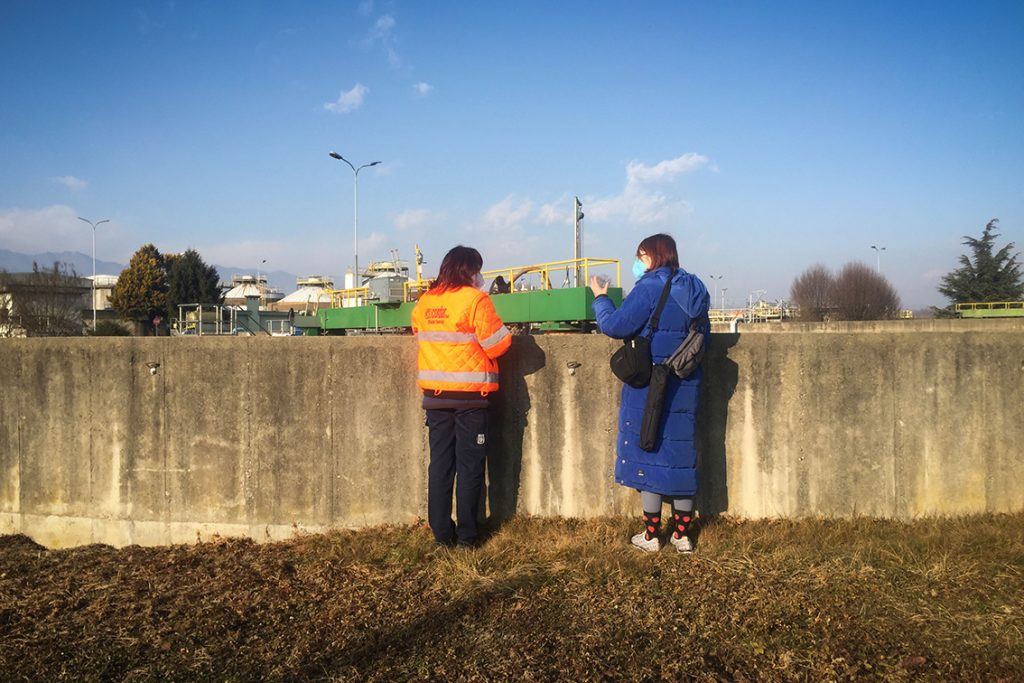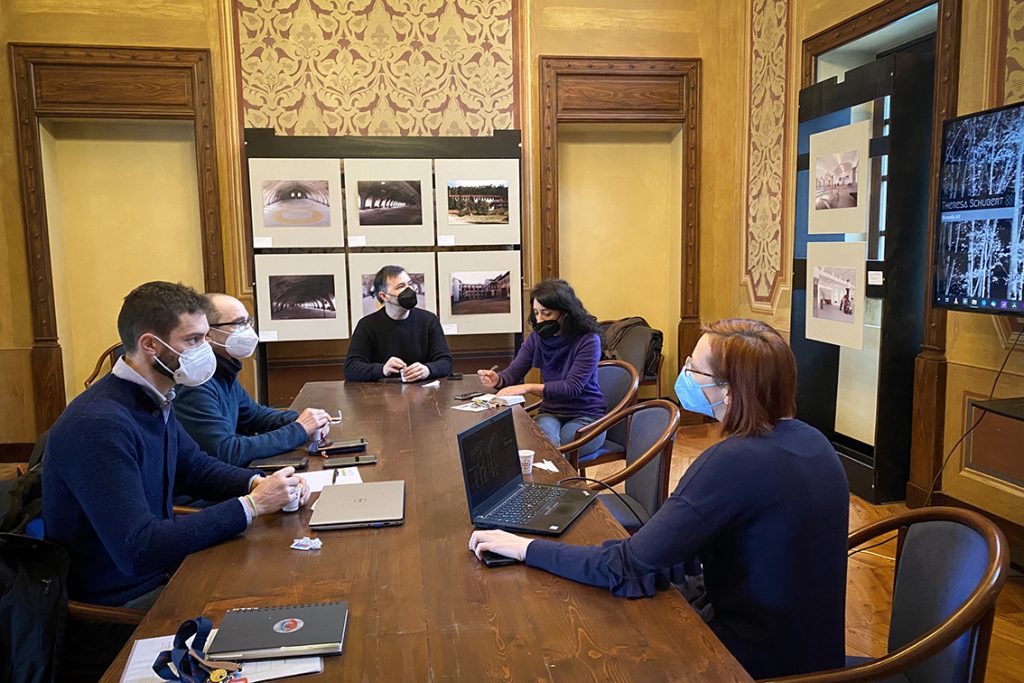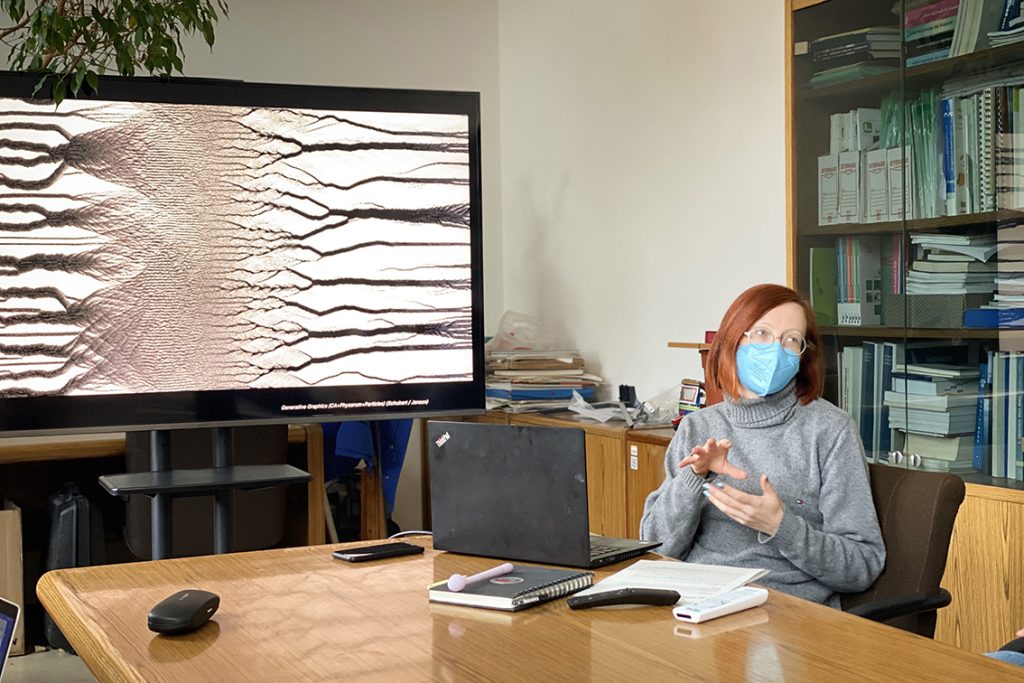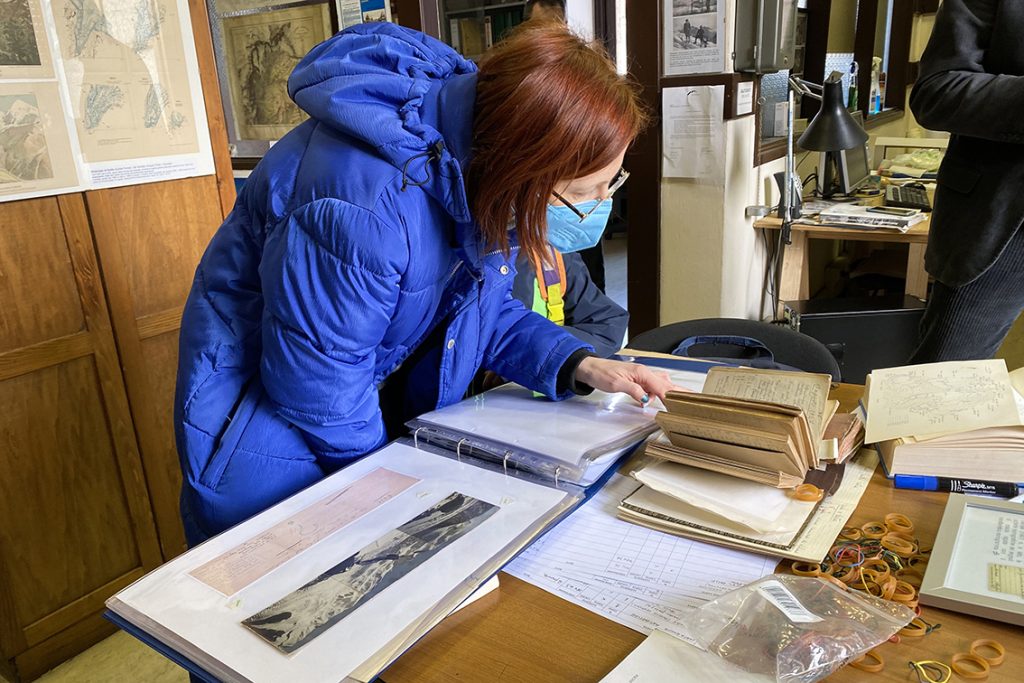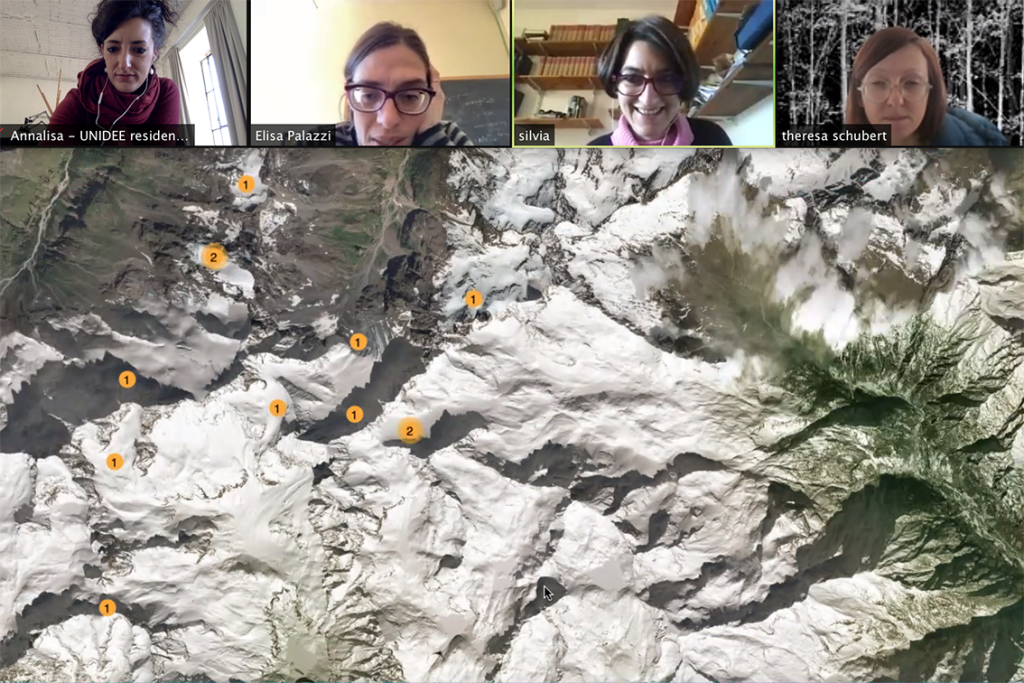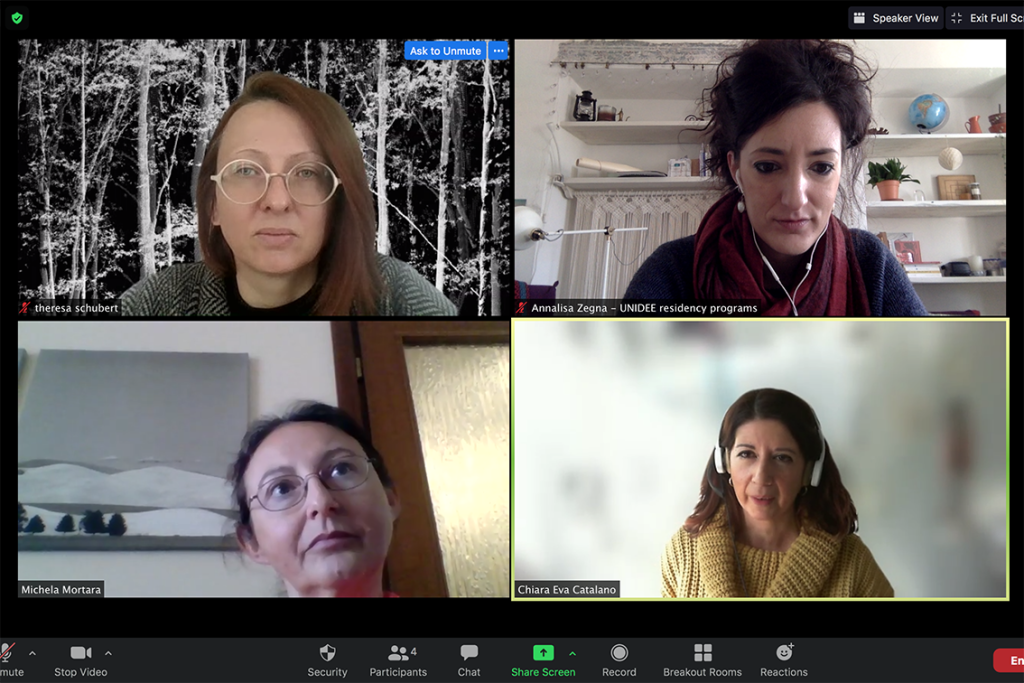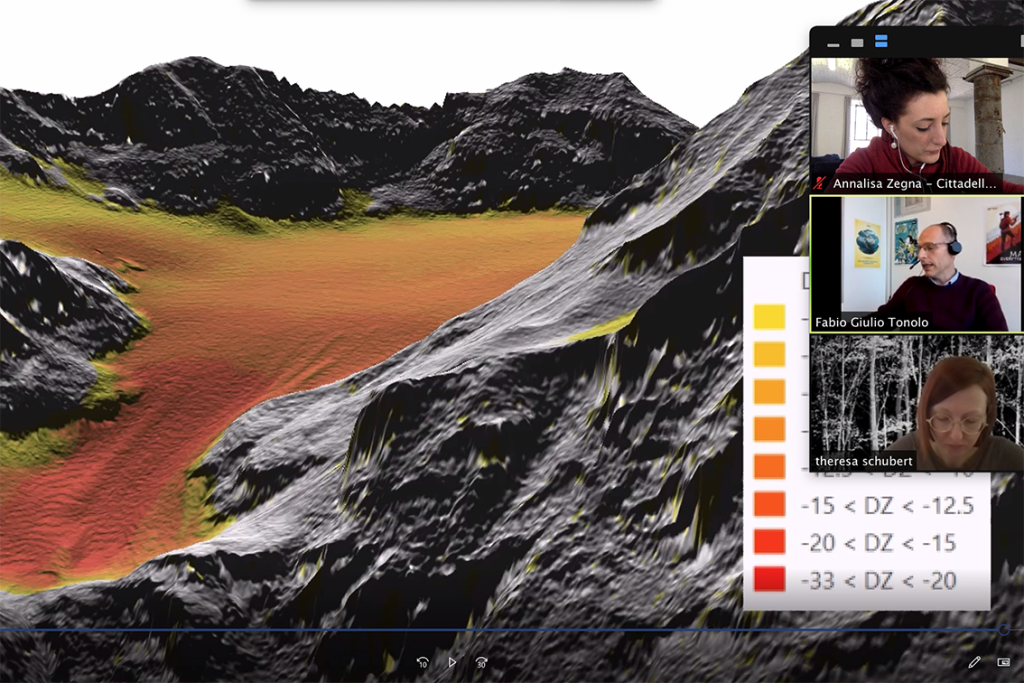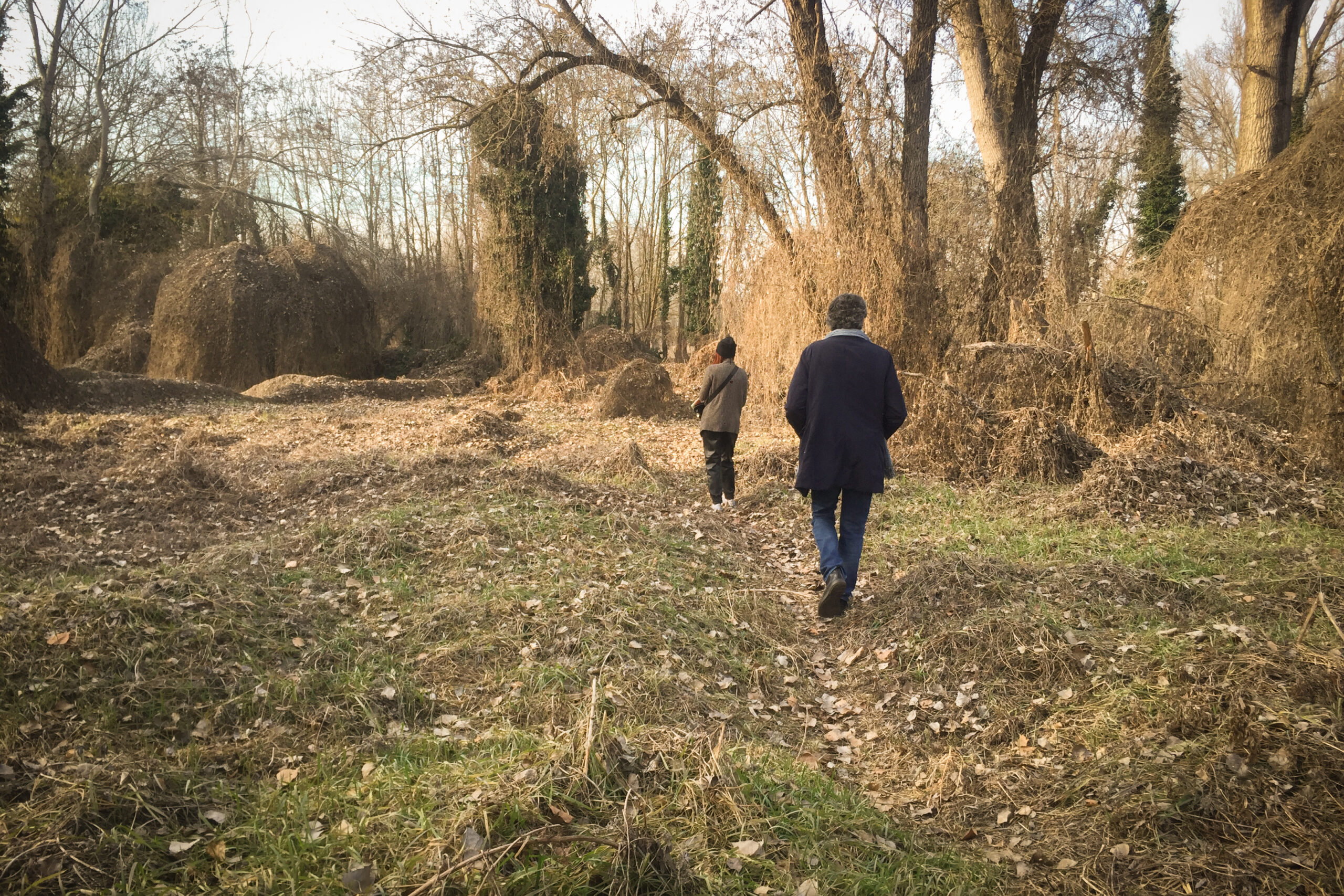Between January and February 2022, Theresa Schubert developed the first phase of her residency within STARTS4Water project hosted at Cittadellarte – Fondazione Pistoletto (Biella, Italy) focusing on the regional challenge Rebuilding relationships with fluvial systems: Fluvial Systems as Indicators of Climate Change and its Impact.
During the two-week intensive residency she met several experts related to the topic of climate change and fluvial systems, and visited places of cultural, scientific, and technological interest in the Piedmont area (North-East Italy). This phase was important to define the research area of her project and to deeply understand the issues related to the regional challenge.
During the two Local Expert Group meetings, one in Biella and the other in Turin, where Theresa presented her practice and methodology at the crossroads of art, technology and scientific research with living systems. Introducing her research focus on fluvial systems as indicators of climate change, she discussed some insights with the experts involved, from different perspectives. The researchers deepened their projects related to high-altitude Alpine areas, data collection models and the simulation and prediction of future scenarios, useful for a process of mitigation and adaptation to climate change. They also talked about the evolution of watercourses, and the study of the relationship between turbulence, sediment and vegetation.
The artist had the opportunity to learn more about the work of the Italian Glaciological Committee (Turin) with Marco Giardino and their archive which promotes and coordinates glaciological research in Italy. It was extremely important to understand the extensive research and monitoring that has been carried out for decades in the Alps.
She explored the research of some CNR (National Research Council) institutes: CNR-ISAC, thanks to the meeting with Silvia Terzago and Elisa Palazzi (Turin); CNR-STIIMA, thanks to the meeting with Alessia Patrucco (Biella); CNR-IMATI, thanks to the meeting with Chiara Eva Catalano and Michela Mortara (Genoa). These meetings provided an insight into current research projects related to water resources and their environmental and ecological monitoring.
Elisa Palazzi and Silvia Terzago introduced environmental monitoring projects on climate change on a global and local scale in the Piedmont Alps, with a focus on data collection and processing. Chiara Eva Catalano and Michela Mortara talked about their projects on water monitoring in the port of Genoa, using sensors and artificial intelligence to implement efficient monitoring, forecasting and planning of interventions. Alessia Patrucco introduced her to the research projects developed in their laboratories on the theme of textile fibers regeneration and innovation in the manufacturing sector with a specific focus on sustainability, recycling and ecological respect for the environment.
Another important technological insight for the development of the project was given by Fabio Giulio Tonolo, Associate Professor of Geomatics at the Politecnico of Turin. Thanks to his expertise, Theresa explored the use of satellite monitoring.
Theresa also met Alessandro Spaudo and Emanuele Scopel, the two founders of the startup Silvergeko, who work with environmental and climate monitoring for applications in the agricultural and production fields, exploring their sensor technology and data collection.
During the two weeks Theresa visited many places related to her research on river systems: the Oropa Sanctuary Meteorological Observatory, a sewage treatment plant in Cossato (Biella), some areas of the Cervo stream, the Po River Park, the rice fields in the Vercelli area, and the system of artificial canals for irrigation.
Moreover Theresa Schubert, together with Joshua G. Stein, presented her research project to the students of ArtEZ University (Arnhem), within the STARTS Academy and in collaboration with Accademia Unidee.
